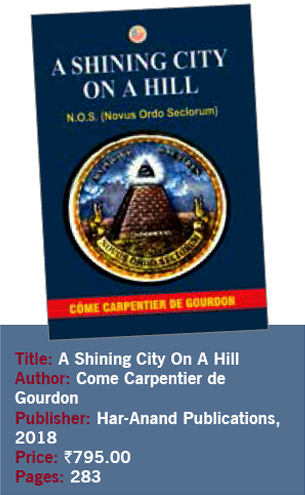THE author was a member of the Indian Administrative Service (IAS) of the Tamil Nadu cadre from 1968 to 2005. The book deals largely with his experiences as a bureaucrat at the district, State and Central levels. He had further assignments in public sector undertakings (PSUs) during 2005-2012. The use of the term ‘reluctant’ in the title is puzzling. Can an officer be considered to be ‘reluctant’ when he has not only completed, largely successfully, his entire career in government without getting into a major controversy and has gone on to serve in PSUs for five years after retirement? Or, is he to be described as ‘reluctant’ because he resisted political interference in a rural development project during his term as Collector and DM? Or do his experiences of humiliation during a few of his Central assignments or postings justify the description?
Most conscientious officials have had and still have similar or, indeed, much worse experiences. Several Secretaries to the Government of India have been subjected to harassment and humiliation while in office (see, for example, the autobiographies/experiences of TCA Srinivasavaradan and CG Somiah, former Home Secretaries, and of MK Kaw, former Civil Aviation Secretary, among others). The author’s reluctance to compromise his basic principles of ‘neutrality, compliance and delivery’ in his work, was commendable but all good officials do function or have functioned with such principles.
Rastogi recounts his bad experience as a ‘non-glamorous’ Director of Investigations in the Central Vigilance Commission (CVC) and then in the Minorities Commission during 1983-88. During his final innings (2000- 2005) he had the experience of working in the Inter-State Council. The Council’s work, though important, remained otiose because of lack of legal powers. This was also the case with the earlier CVC job. The author retired as Secretary (Border management) in the Union Home Ministry.
The author waxes eloquent about federal governance but seems to have not seen former Union Home Secretary Srinivasavaradan’s important autobiographical work on federal governance (1992), which identifies major challenges for the Government of India: i) ‘fire-fighting’ operations such as dealing with drought, scarcity, famines and elections; ii) long-term ‘nation-building’ challenges in dealing with violence in the Northeast, J&K and the central tribal belt. While appreciating the operational skills of the Indian bureaucracy, the author stresses the need for additional inputs of knowledge, skill, vision and expertise at the top.
Ad-hocism and amateurishness have damaged policy-making in the government. He also stresses the need to set up multi-disciplinary study-cum action teams of bureaucrats, scholars and social activists to come up with recommendations on complex policy issues. However, the more recent NN Vohra Committee report (1993) brought out the emerging linkages between politicians, bureaucrats and criminals. Already in 1983, a foreign expert on the Indian police had noted that police officers in India were preoccupied with politics, penetrated by politics and were participating in it individually and collectively!
The author singles out the ancient Hindu text, Arthasastra but fails to mention the Constitution of India, which foregrounds the concept of rule of law. The Constitution’s Preamble, Directive Principles of State Policy and Fundamental Rights form elements of ‘good governance’, which are seriously neglected. The author also fails to mention the recommendations of the Second Administrative Reforms Commission (2005-2007) and its fourth volume on ‘Ethics in Governance’. Governance in India is a vast and interlocking system in which administrative, legislative and judicial arrangements bind the Central and State governments together and inhibit efforts to bring about reforms (West Bengal Administrative Reforms Committee, 1983).
While I compliment the author for attempting a rapid account of his professional experience over several decades, the value of the book would have been enhanced if an analytical and thematic framework linking the multiplicity and complexity of tasks he has performed over the years had also been provided.
The writer was a member of the IPS and is the author of several books on public order and governance
















































